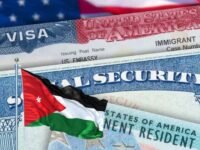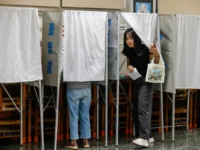Why does African mediation stumble in solving the Libyan crisis?
The African Union Security and Security Council on Libya has highlighted the feasibility of the union’s diplomatic role and its devices. The Libyan diplomat, former chief adviser to the United Nations, Ambassador Ibrahim Qarada, criticized the path of the political role and African mediation in the Libyan file, which was shown by the language of the closing statement of the Edis Ababa repeated meeting. Usually, the Libyan political and institutional division “makes it difficult for the peace and security council task.”
* Cheat attendance
The low attendance of the African role was evident, and its efforts were clearly echoed in the summit of the “Peace and Security Council”, which was satisfied with recommendations that diplomats described as “traditional”, where it centered on “political reconciliation”, “expressing anxiety from armed clashes in Tripoli”, and supporting “presidential and legislative elections” and “the immediate exit of foreign forces.”

On the other hand, according to the belief of the African affairs expert in the “Al -Ahram Center for Political and Strategic Studies”, Dr. Amira Abdel Halim, the role of the African Union and the Peace and Security Council “is still subject to a view that the Libyans adopted in the aftermath of the February Revolution, as they went back that African countries and their regional organizations, especially the continental organization, were supportive of the Gaddafi regime.”
In November 2016, the African Union sponsored the first high -level meeting concerned with the crisis in Libya, where the Union’s desire to “restore the initiative on the Libyan crisis” was then renewed, after a 5 -year absence from the political crisis, in light of the differences in the position of the Union and its declaration on the Gaddafi regime.
Since then, the African Union’s movements have not been recorded in the file of the Libyan crisis, not even in terms of the main concerns of the African continent, most notably the increase in irregular immigration rates for Europe across Libyan territory.

However, during its last meeting last week, the “African Peace and Security Council” re -highlighted the “Libyan Reconciliation Charter”, which was signed in Addis Ababa on February 14th, under the auspices of the African Union, a document that had a widespread controversy in light of the ambiguity of its content, and the names of the signatories on it, and did not have a complete consensus.
Despite the council’s call in its recommendations, which did not sign the “reconciliation charter”, to accelerate the signature, the former spokesman for the Gaddafi regime, Musa Ibrahim, who is one of the signatories of this document, believes that its implementation of its implementation “clearly reveals the size of the structural deficit, which the African Union suffers from.”
The “Charter of Reconciliation” has “political and symbolic importance”, from the perspective of Ibrahim, who told “the Middle East” that the African Union “does not have the executive tools necessary to translate it into an actual reality on the ground, and the strong diplomatic presence, which enables it to pressure the parties concerned, not even the independent political will, capable of making this document a real alternative to European initiatives.”
The former spokesman for the Gaddafi regime goes to talk that “the African document could have represented a sovereign path that comes out of Libya from the Consoltural Circle”, comparing this with “the formulation of many Western initiatives about Libya to be tools for conflict management, not solving”, usually that the latter aims to “keep the country in a state of division and chaos, in a way that serves the interests of external forces,” as he put it.
Ibrahim added, “The absence of the independent African will, and the union retracted its historical role, made the document ink on paper, waiting for a mature African moment, imposing its will and restoring the initiative from European capitals.”
* The role of regional and international parties
According to observers, “the influence of the regional and international parties that interfere in the Libyan file on the African diplomatic role cannot be isolated over the years, especially after the results of the last African peace and security summit,” as the belief among diplomats, including a tick, is established that “many African countries are of interest and influence the Libyan crisis falls under directives, accounts or pressure from countries with agendas, which interfere in The Libyan crisis. ”

Here, Amira Abdel Halim sees that “many of the external parties involved in the Libyan crisis will not depend on the African Union and the Peace and Security Council; Except in the event that there are common interests between them that seeks to support them, in exchange for providing an opportunity for African powers to participate in the settlement of the Libyan crisis.
Abdel -Halim noticed “the exploitation of the external forces of the Libyan conflict, including France, which seeks to build a military base in southern Libya, after the peoples of the coastal states brought them out of the region, causing great economic and political losses to them.”
Previous factors do not ignore structural problems in the African Union, and its ability to respond to crises on the continent, according to analysts. Here, the Libyan diplomat sees a tick that the recent results of the Summit of the Peace and Security Council “reflected his light weight in the equation of international balances in the Libyan crisis.”
Also, these results reveal “a routine action that is associated primarily with the functions and equipment of the union, and does not rise to the level of effectiveness required in settling crises and civil wars in African countries,” according to Abdel Halim.













0 Comments